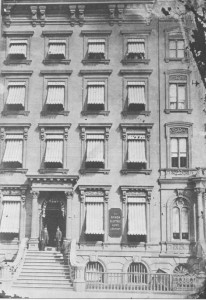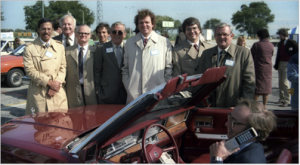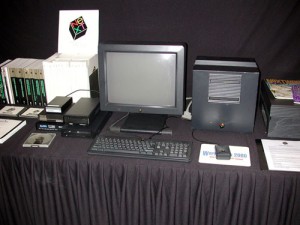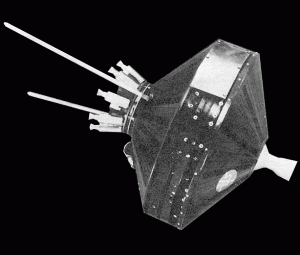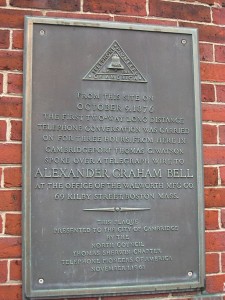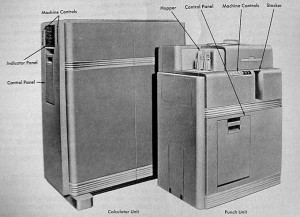Archive for 2024
Edison Electric Light Company Formed
Thomas Edison and a group of investors form the Edison Electric Light Company. The goal of the company was to provide financial support for Edison’s electric light experiments and work on developing an electrical lighting system for an entire city. The long-lasting carbonized filament light bulb was developed by Edison while working for this company. Eventually this and several other Edison companies were merged to form General Electric.
Photographic Film Patented
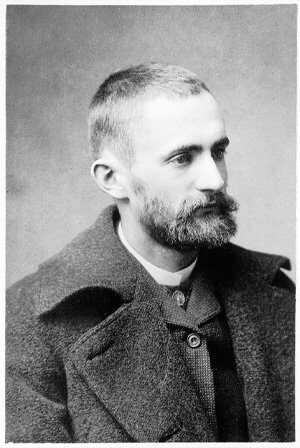
October 14, 1884
George Eastman receives a patent on his paper-strip photographic film. Prior to the invention of photographic film, photography was primarily done using “wet plates,” which was cumbersome, expensive, and not easy to transport. The invention of photographic film made photography much simpler and portable. Interestingly adoption among the professional photographers of the time was slow, likely because they didn’t see an advantage of moving from wet plates in studio work. Only when Eastman started to market his film and cameras to the general public did photographic film become popular.
Besides the invention of photographic film, Eastman was also instrumental in advancing photographic technology in the late 1800’s and making it accessible to anyone who wanted to take pictures. He would later found the Eastman Kodak company based on the success of his photographic film and camera technology. Before the days of digital photography, film was inseparable from the art and skillset of photography for nearly 130 years.
Cellular Goes Live in US
Ameritech Mobile Communications executive Bob Barnett makes a phone call from a car parked near Soldier Field in Chicago, officially launching the first cellular network in the United States.
Steve Jobs’ NeXT Computer
Hailed by Steve Jobs as a computer “five years ahead of its time”, NeXT, Inc. introduces their NeXT Computer. Due to its cube-shaped case, the computer was often referred to as “The Cube” or “The NeXT Cube”, which led to the subsequent model offically being named “NeXTcube“. The new computer introduced several innovations to personal computers, such as including an optical storage disk drive, a built-in digital signal processor for voice recognition, and an object-oriented development environment that was truly years ahead of its time.
While not a commercial success, the NeXT Computer and the technology developed for it have a long and storied history. Tim Berners-Lee developed the first world wide web server and web browser on a NeXT computer, crediting the NeXT development tools for allowing him to rapidly develop the now ubiquitous Internet system. After Apple purchased NeXT in 1997, they used the operating system of the NeXT computers to form the base of Mac OS X. Eventually Apple’s iOS, which runs the iPhone and iPad, was itself based upon Mac OS X and hence draws its lineage to NeXT. Finally, the object-oriented development environment that Berners-Lee used to create the World Wide Web is the forerunner of the development environment that today’s programmers use to develop iPhone and iPad Apps. If it wasn’t for the NeXT Computer back in 1988, many of the technologies we make use of today may have evolved very differently.
NASA’s First Launch
NASA launches Pioneer 1, the first spacecraft launched by the newly formed space agency. Originally intended to fly by the Moon, a launch malfunction due to a programming error caused Pioneer 1 to only attain a ballistic trajectory, which caused it to fall back to the Earth after 43 hours of flight. However, some useful scientific data was returned by the spacecraft.
Comptometer Patented
Dorr E. Felt is granted the second of two patents on his comptometer, the first practical and commercially successful key-driven mechanical calculator. Various comptometers were in continuous production from 1887 to the mid 1970’s.
Pac-Man Fever Begins
Namco officially transfers rights to Midway for distribution of the games Pac-Mac and Rally-X in North America. While the exact date that Pac-Man started shipping to arcades in North America is currently unknown, most sources cite October of 1980. The Japanese release under the name “Puck-Man” had occurred in May of 1980, however this date is important because the game’s popularity didn’t fully take off until being released in the United States. Pac-Man will become the first true mega-hit video game in history, sparking “Pac-Man Fever” and catapulting the video game industry into mainstream culture.
First Phone Call Over Outdoor Wires
Finish Him!
The video game Mortal Kombat is released into arcades. Now one of the most popular fighting game series in history, the original Mortal Kombat became well-known for its graphic display of blood and deadly finishing moves known as “fatalities”. As often happens in situations like these, the controversy surrounding the game only served to fuel its popularity.
I remember the game becoming popular on the heels of Street Fighter II. I never really liked the game because I felt it was all flash and no substance. And the martial arts techniques portrayed were often really bad. But it was occasionally fun to knock someone’s head off.
The First Transistor Calculator
IBM researchers modify an existing model 604 vacuum tube calculator to use transistors. This experiment didn’t shrink the desk-sized machine nor make it any faster, but it did use only 5% of the power the vacuum tube-based design did. Encouraged by this successful experiment, IBM introduced the first commercial transistor calculator 4 years later, the model 608.

